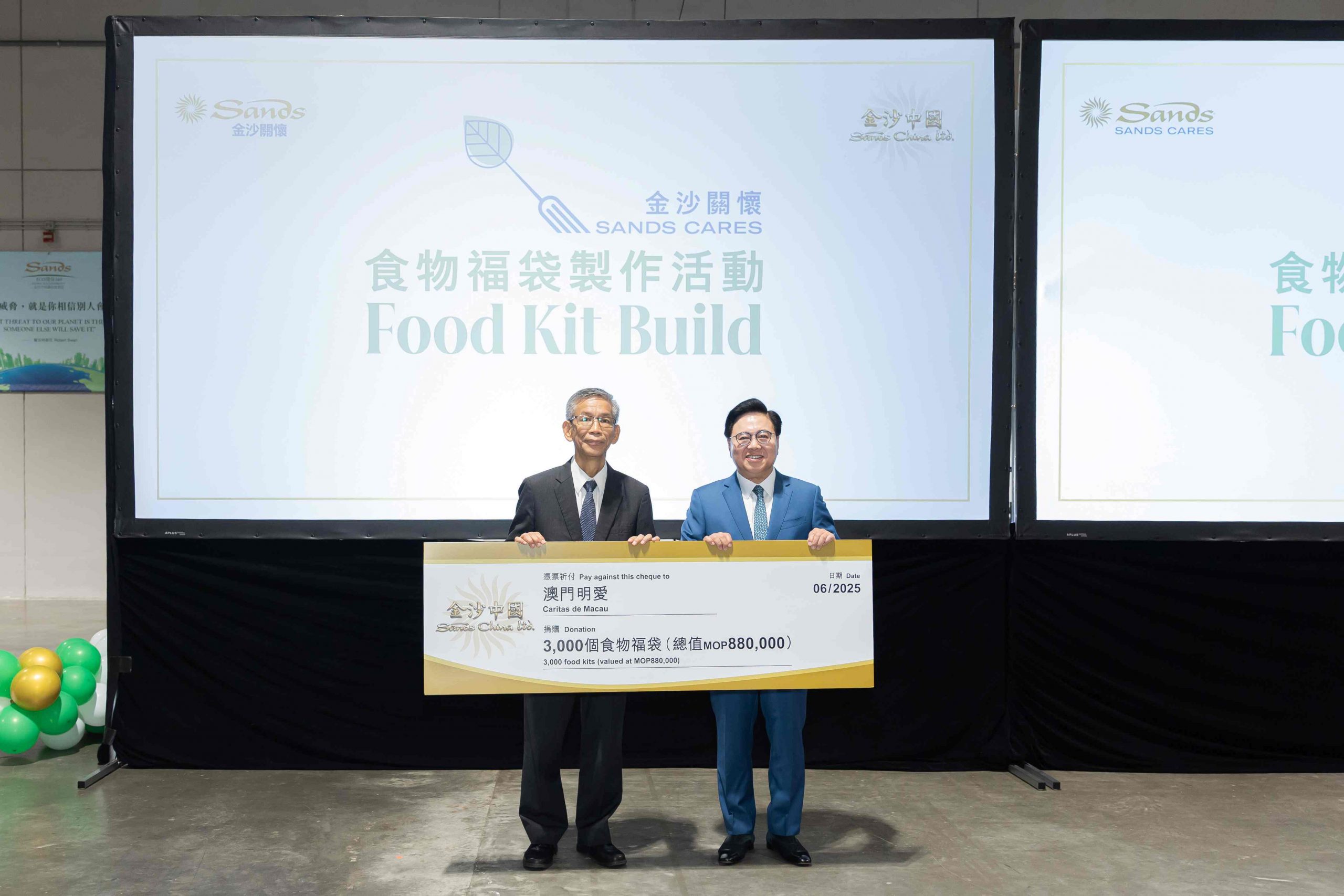Jasmin Yiu
Bishop Emeritus Jose Lai: Young people are encouraged to learn from saints through spiritual readings
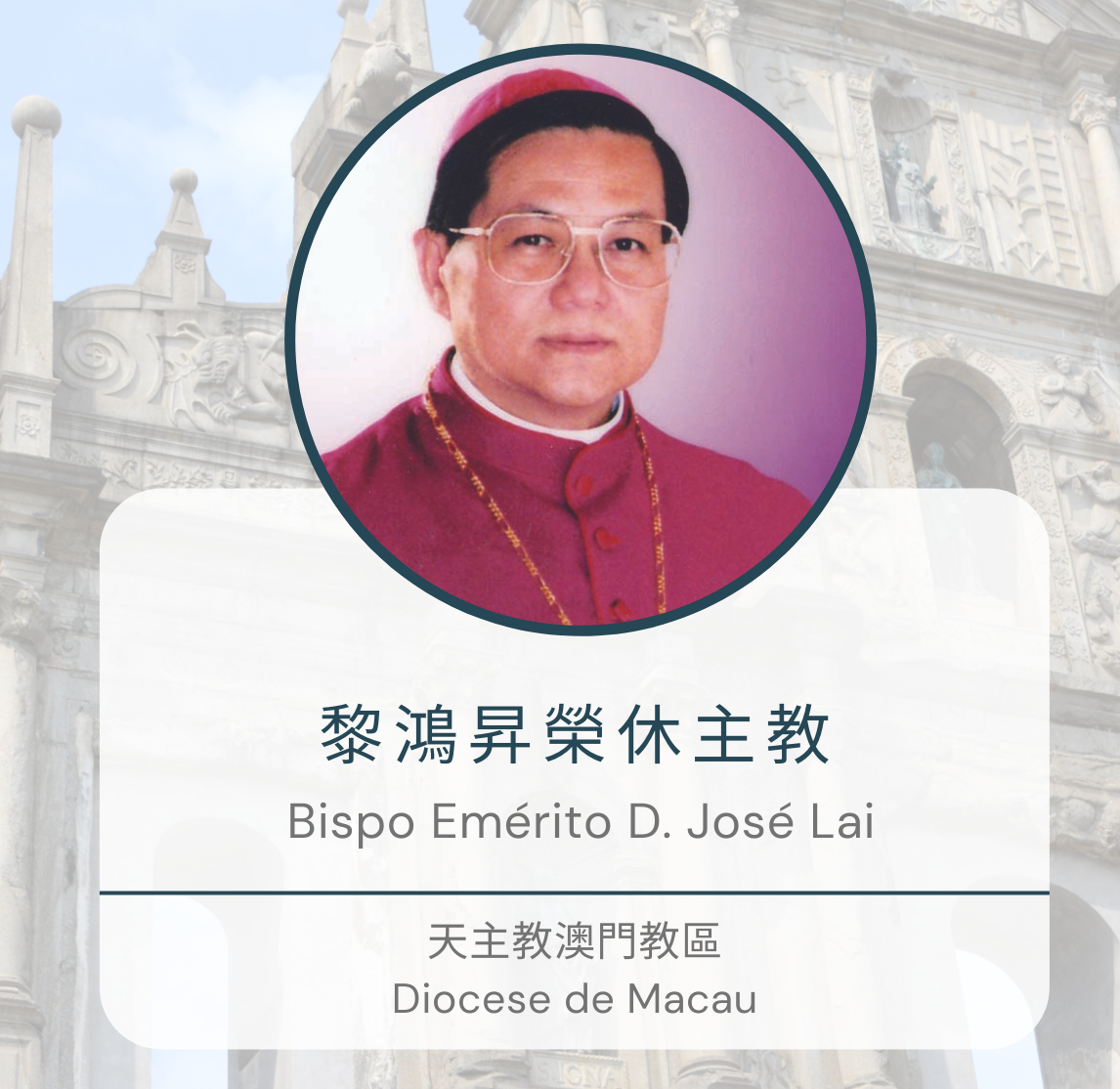
What has made you the most happy in these 50 years of priesthood?
I am grateful that God has been endlessly teaching and guiding me, allowing me to “do something,” not for myself, but for God. It is God giving me the opportunity to assist His work. Every faithful should have this heart too, that it is not we who do things, but it is God’s work. We, humans, can never work great things.
Also, I’m very happy that I can introduce the Good News to the people around me. The Four Gospels are enough for us to study and learn our entire lives in order to learn to live out holiness. Therefore, I hope all Catholics can spend more time studying the Gospel, not academically, but through deeds and words.
How would you like to encourage young people to consider their vocation?
Young people need good role models they can follow. I hope they can always remember the essence of Jesus’ words to the disciples, “You therefore must be perfect, as your heavenly Father is perfect” (cf Matt 5:48). Remember always, we need to be perfect in order to work for God, but not for men.
Fr Joao Lau: A Relationship with God is the solid foundation to answering the call to a vocation
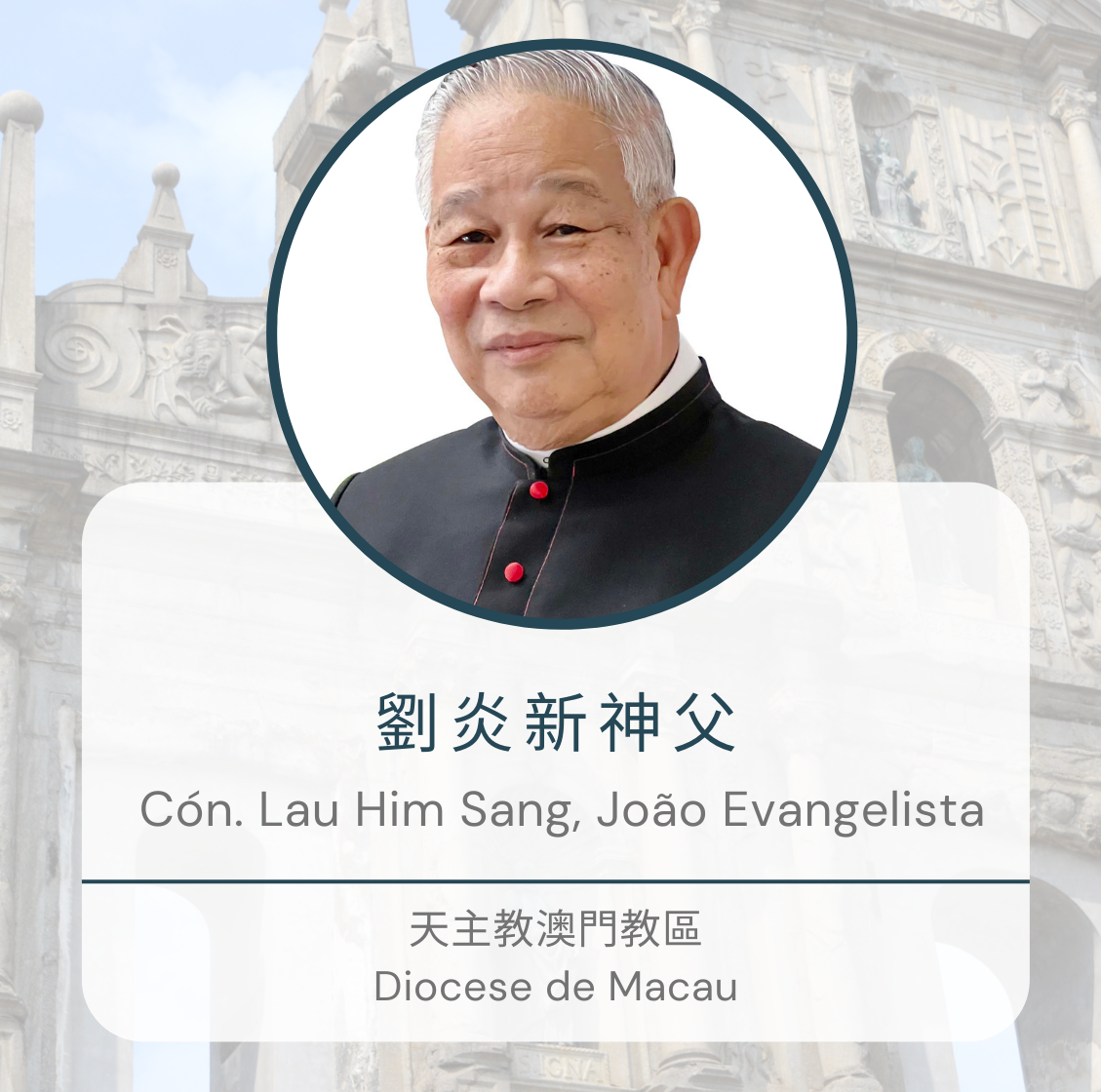
Is it possible to share your vocation story with us?
Vocation is hard to be shared, but there is an important yet undeniable message: if God wants you to be a priest, you can never escape from that, even if you rebel against the notion, you can never escape from God who chooses you. However, if you desire to be a priest, but it is not in God’s plan, you will never become an authentic one.
The budding of vocation is mainly based on our relationship with God. It is not always determined by our desires, but by God’s decision, it’s His Choice. Therefore I love the verses in Psalm 139 that say we are all chosen before we were born, when we are still in our Mother’s womb.
As you mentioned, vocation starts with our relationship with God, which also begins with our love toward God. How should we teach young people to love God?
We do not need to know how to love, but we need to learn and try to love God. Especially when we follow His will, we are already on the path to loving God.
Jesus is present in all humans. Whenever we love people around us, we are also loving Jesus, which concretizes the way of loving God. Sometimes this “concreteness” makes us unaware we are already loving Jesus. Therefore, young people can start with serving and loving others. “Serving God” is kind of a mystery through which all Catholics can learn. God is always here, leading and guiding us in different ways.
How can young people know and discover whether they have a calling from God?
One never knows whether he/she has a vocation through constant prayers. Prayers are needed, but it does not mean a person who prays longer surely has a vocation. As mentioned, the person needs to first establish a solid relationship with God, and generously answer God’s call in this relationship, by saying “I’m willing to serve.” With this, it’s the beginning of a vocation, but it’s all God’s will. Without this solid relationship, a priest is not a shepherd, but just a person with a title.
What should we do in order to cultivate more vocations for the Church?
Nurturing vocations is never equivalent to numbers of activities held. We need to let young people recognize whether God has called them, we need to teach them to discern, just like Eli said to Samuel, “Speak Lord; for thy servant heareth” (1 Sam3:10). Therefore, we need to teach young people to learn to listen to the voice of God, not necessarily through saying many vocal prayers, but through different things happening in their lives and the people they have encountered. We must teach them to see clearly their mission in all these and discover what God wants them to do.
Fr Fausto Gomez: We are all weak, and we should always seek the Strong One – God
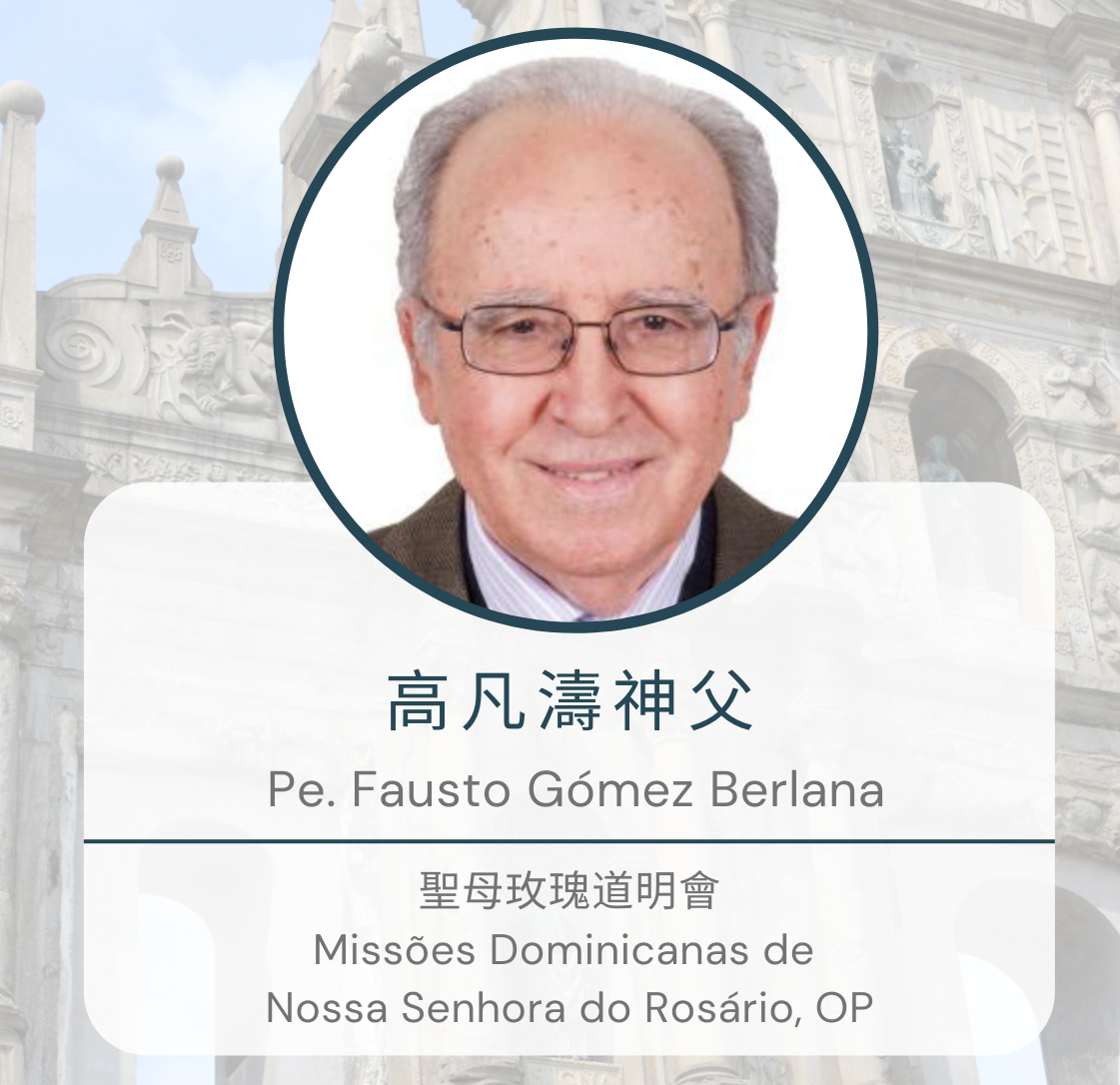
Father, can you share how you answered your call to the Dominican Order?
I come from a small town called El Oso in Avila, Spain, which many of you know from the life of St Teresa of Avila. In this town, there is a Dominican school, and I started attending when I was seven. Afterwards, I went to Toledo and Segovia to start my novitiate. On 11 July 1955, I was 18 years old, I had taken my first vows, and I went to Madrid to start studying theology. In October 1958, I was assigned to Washington DC to finish my theology degree, and in the US, I was ordained as a deacon. On 14 June 1962, when I was 24 years old, I was ordained as a priest. After finishing my licentiate in theology, I was assigned to serve in Manila, Philippines.
How long have you been serving in the Philippines?
46 years, almost my whole life! I started my teaching at the University of Santo Tomas, mainly teaching philosophy and theology, and afterwards I was assigned to be part of the medical team, where I started to research more on bioethics and moral theology.
From 2000 to 2015, I was assigned as a member of the Pontifical Academy for Life. I did not contribute much, but attended an annual conference in Rome, and all these experiences made me learn a lot. In my 40 years in the Philippines, my life as a priest is mainly teaching and preaching, which is also the spirit and mission of a Dominican.
What exactly is the mission and the spirit of the Dominican Order?
First we have to be clear, all congregations, all missionaries and all laymen are the same, we share the same mission, which is to preach Christ, through different ways and methods. But how to distinguish the spirit of Dominicans? We have three main signs: Study, Community and Prayer life. It means that we have to preach Christ and save souls.
Our life in the Dominican Order is one of being an active contemplative, meaning we focus on meditation and contemplation, but at the same time we never neglect our preaching mission.
How important is this active contemplation to your vocation?
In my vocation, what is the action of my soul? It is praying to God, and in it, I meditate. From meditation to contemplation – meditation is more rational and contemplation has the connotation of worshipping. Through my prayers, through Holy Mass and Holy Rosary, I am able to live the fullness of my vocation, and contemplation allows me to live out the presence of God, through which I can fulfill my vocation as a Dominican.
All Christians need prayers, because we are all weak; and since we are weak, we need to seek the Almighty One, the Strong One – God. We need to connect ourselves to Him. God always listens. As long as we remain humble and pray, God will always listen to us.
In these 60 years of priesthood, what was your happiest moment? And vice versa?
I think what makes me the happiest is that, I have found peace in my soul, that is, in my relationship with others (especially in my community), in my relationship with God, I am peaceful. And the most unforgettable day was the day of my ordination. My saddest day was the death of my mother, because we were very close. My mother always desired her son to be a priest, and this wish of hers brought me closer with her. Therefore, her death affected me a lot.
Of course, as I said, we are all weak, and I had bad and sad experiences, but I always tried to live with joy every single day. There is always room for improvement, in our spiritual growth, in our prayers, in our souls…there is always room. Until the day I die, I will keep trying and keep improving to get closer to God.
(Main image: jaocampoz at Pixabay)

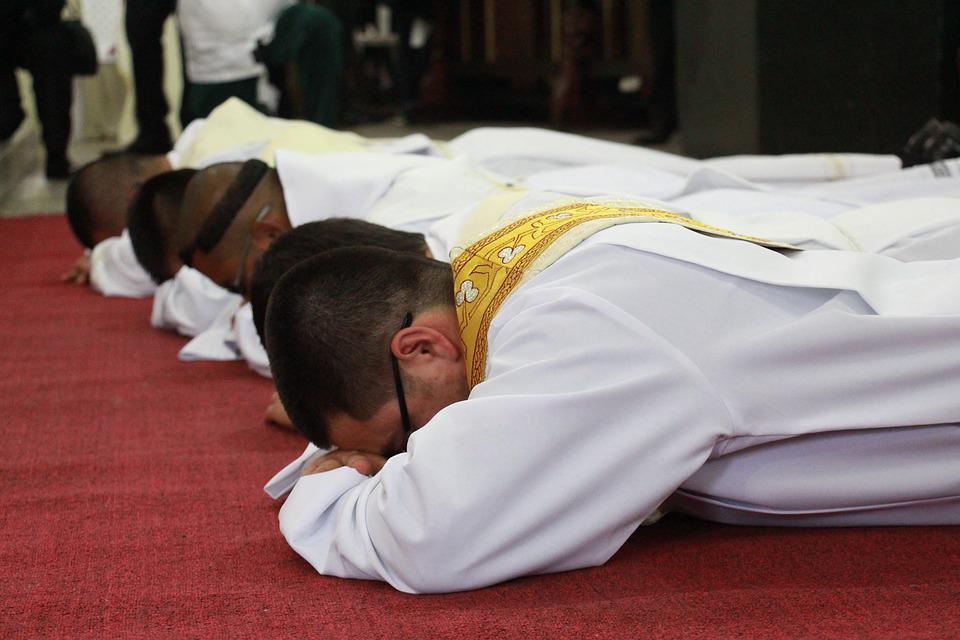
 Follow
Follow


